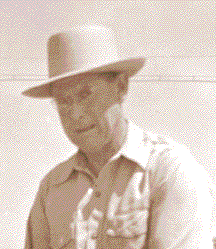 1898-1985
1898-1985
Paul Gregory was born in Frankfort, Kentucky. He graduated from Franklin County High School in 1917 and joined the Army in 1918. He earned a BS from the University of Kentucky in 1922 and an MS from Kansas State in 1924. From 1924 to 1926 he was an Associate Professor of Biology at Louisiana State Normal College. Paul continued his education at Harvard University, majoring in Zoology and Genetics, and received a second MS in 1927 and a DSc in 1928. He then served as Professor of Biology at Baker University until 1930.
In 1930 he joined the faculty at UC Davis as an Assistant Professor of Animal Husbandry. Paul was the first formally trained geneticist in the department. He cooperated productively with other faculty members and published on the genetics of growth, body size, disease resistance, and the inheritance of defects in most of the animal species studied at the campus.
Professor Gregory taught the upper division basic genetics course until the Department of Genetics was established after World War II. He served as Associate Editor of Growth and was a cooperator with the Agricultural Research Service. During his early years at Davis, Paul worked on the inheritance of size in rabbits and on the relationship of glutathione concentration to rabbit size inheritance. He published on the inheritance of 15 genetic defects in dairy cattle and outlined breeding methods to minimize losses to these defects. He described an inherited resistance to brucellosis in a Berkshire swine herd. and worked on the role of the inheritance in growth of beef cattle.
Paul Gregory's later years were spent investigating the genetics of dwarfism in beef cattle. He found the achondroplastic genetic defect to be more complex than the single recessive gene model previously used. This research was of great importance to the cattle industry. The research was complex and controversial: some breeders feared it would reveal defects carried in certain lines of cattle and reduce the value of their animals. Dr. Gregory's integrity and strict observation of confidentiality prevented such occurrence and the research proved of great benefit.
His counsel was sought by breeders and research workers throughout the United States and several other countries. He was held in high esteem and gave generously of his time and talent.
